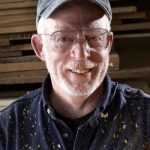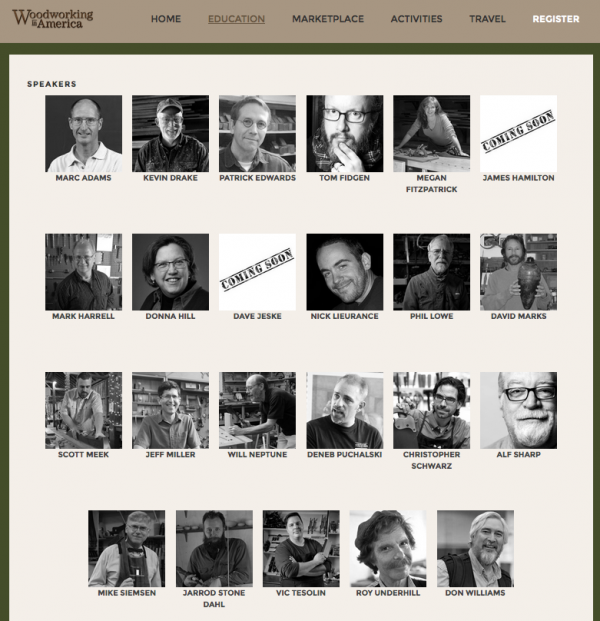We may receive a commission when you use our affiliate links. However, this does not impact our recommendations.
 For Kevin Drake, founder of Glen-Drake Toolworks and creator of the Tite-Mark marking gauge, the most important factor for successful woodworking is what happens before the tools touch the wood.
For Kevin Drake, founder of Glen-Drake Toolworks and creator of the Tite-Mark marking gauge, the most important factor for successful woodworking is what happens before the tools touch the wood.
Understanding how tools work, and constant practice, is the real secret to becoming a better woodworker – and it took careers unrelated to woodworking for Drake to learn that.
“I worked in and out of Los Angeles for 30 years, half that time as a professional drummer and the other half as a computer programmer,” Drake said. “Most people think that the study of percussion is the study of sound. It’s not. It’s the study of motion, and I have found that awareness to be invaluable for honing woodworking skills.”
Working as a computer programmer, Drake said, taught him that a problem cannot be solved unless it is understood.
“Seeking immediate results generates workarounds that obfuscate the real problem,” Drake said. “As a toolmaker, I continue to focus on the problem so that I can develop viable solutions and not time-consuming workarounds.”
Drake will share his expertise and understanding at Woodworking in America 2015, Sept. 25-27, at the Sheraton Crown Center in Kansas City, Mo. In “How the Body Turns,” Drake will drill down on how the body functions behind the lathe, why “catches” and other common problems happen and – most important – how to overcome them. You’ll also gain an understanding of the subtle differences between flat skews, round skews and oval skews during this session.
“I frequently see people stick a tool in the path of wood that is rotating and call it turning. Then they sand with #36 grit, a window fan, and a respirator,” Drake said. “I want to present an approach to turning that can leave a surface on a spindle that compares to the surface left on a board when you polish it with a hand plane – little or no sanding required.”
The physicality of drumming and the deep analysis required for coding served Drake well as he moved into furniture making. After studying under James Krenov at the College of the Redwoods in Fort Bragg, Calif., Drake moved into professional woodworking, then into creating and building high-quality woodworking tools.
For any woodworker, the important thing is to keep learning and building your skills and understanding. As a drummer, without practice, there could be no performance, Drake said.
“Projects are nice, but they don’t improve our skills the way practice does because we are never willing to put projects at risk. When we are willing to burn the results, we can push our own envelope.”
Sign up for Woodworking in America here
See a list of all Woodworking in America classes here
Here are some supplies and tools we find essential in our everyday work around the shop. We may receive a commission from sales referred by our links; however, we have carefully selected these products for their usefulness and quality.










I once offered a class called, “Burn what you make” The idea was to use inexpensive materials and practice skills without the fear of spoiling the project which was to be burned on the final night of the class.
“When we are willing to burn the results, we can push our own envelope.” YES!!!! I prefer to teach skills-based classes rather than project-based for exactly that reason. It removes the project pressure, worrying about ruining it or getting it done in time. I tell people they are making two things in my classes: skills, and firewood.